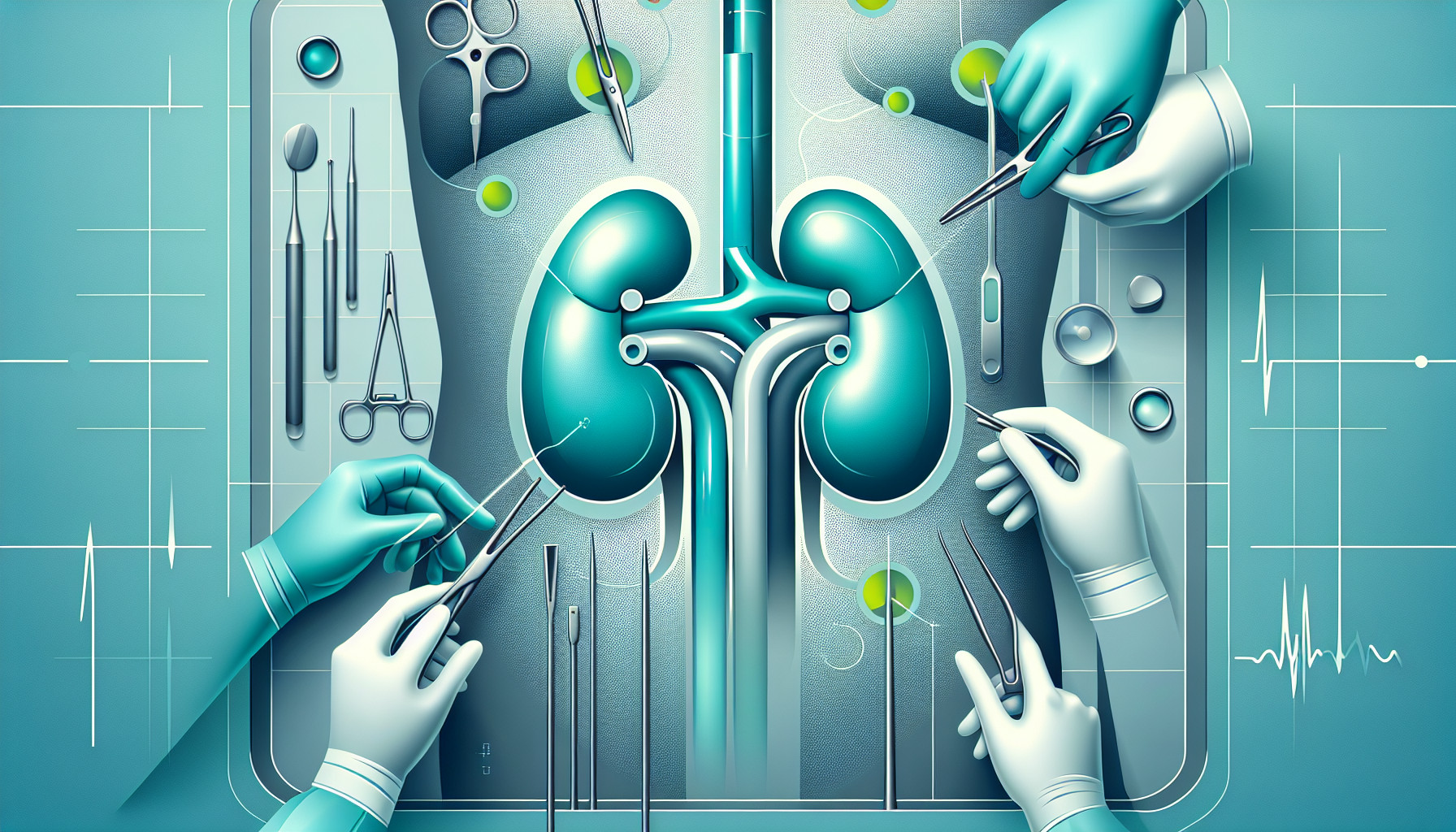Our Summary
This study discusses Hepatitis C virus (HCV) infection, which is commonly found in people with kidney disease, including those who need a transplant or have received one. This infection can lead to increased illness and death rates in those with advanced kidney disease and can also reduce the success of kidney transplants. New drugs that target the virus directly have changed the way we treat HCV, with cure rates over 90%. There’s debate about when to treat kidney transplant patients - before or after the transplant. Treating before the transplant can reduce complications after the transplant. However, treating after the transplant allows for the possibility of using a kidney from a donor who also has HCV, which can reduce wait times and make better use of available organs. The best time to treat will depend on the individual patient’s circumstances, such as the severity of their HCV, the availability of live donors, and so on.
FAQs
- What is the connection between Hepatitis C virus (HCV) infection and kidney disease?
- How has the treatment for HCV changed recently and how effective are these new treatments?
- Should kidney transplant patients with HCV be treated before or after the transplant?
Doctor’s Tip
One helpful tip a doctor might give to a patient about kidney transplant is to closely follow their medication regimen and attend all follow-up appointments. It is important to take immunosuppressant medications as prescribed to prevent rejection of the transplanted kidney. Missing doses or not following the medication schedule can increase the risk of rejection and decrease the lifespan of the transplanted kidney. Regular follow-up appointments with the transplant team are also essential to monitor kidney function, adjust medications as needed, and address any concerns or complications. Compliance with medication and follow-up care is crucial for the long-term success of the kidney transplant.
Suitable For
Patients who are typically recommended for a kidney transplant include those with end-stage renal disease (ESRD) who are not responding well to dialysis, have a good overall health status, and have a suitable donor. Additionally, patients with certain conditions that can lead to kidney failure, such as diabetes or autoimmune diseases, may also be considered for a kidney transplant. Patients with HCV infection who also have kidney disease may be recommended for a kidney transplant if they have a good chance of success with treatment and if the infection can be managed effectively. Ultimately, the decision to recommend a kidney transplant will depend on the individual patient’s medical history, overall health, and specific circumstances.
Timeline
Before a kidney transplant:
- Patient is diagnosed with end-stage renal disease (ESRD) and is evaluated by a transplant center for eligibility for a kidney transplant.
- Patient is placed on a waiting list for a deceased donor kidney or seeks a living donor for a kidney transplant.
- Patient undergoes pre-transplant evaluations, including blood tests, imaging studies, and other medical tests to assess their overall health and suitability for a transplant.
- Patient may undergo dialysis treatments to manage their kidney failure while waiting for a transplant.
- Patient receives a compatible kidney from a deceased or living donor through a transplant surgery.
After a kidney transplant:
- Patient is closely monitored in the hospital for any complications following the transplant surgery.
- Patient may experience side effects from the anti-rejection medications, such as increased risk of infections, diabetes, high blood pressure, and other side effects.
- Patient undergoes frequent follow-up visits with their transplant team to monitor kidney function, adjust medications, and address any issues that may arise.
- Patient is advised to follow a strict medication regimen to prevent rejection of the transplanted kidney.
- Patient may experience improvements in their overall health and quality of life, including a reduced need for dialysis and improved kidney function.
- Patient undergoes regular screening for complications related to the transplant, such as infections, rejection, and other medical issues.
- Patient may need to make lifestyle changes, such as following a healthy diet, exercising regularly, and avoiding certain medications or activities that may harm the transplanted kidney.
- Patient may experience long-term success with their transplanted kidney, leading to a better quality of life and improved health outcomes.
What to Ask Your Doctor
What are the risks and benefits of receiving a kidney transplant as a patient with Hepatitis C virus (HCV) infection?
How does HCV infection impact the success of a kidney transplant?
Should I be treated for HCV before or after receiving a kidney transplant?
What are the treatment options for HCV before and after a kidney transplant?
How will HCV treatment affect my kidney transplant recovery and outcome?
Are there any potential drug interactions between HCV medications and anti-rejection medications used after a kidney transplant?
How will HCV treatment impact my overall health and quality of life post-transplant?
What is the success rate of kidney transplants in patients with HCV compared to those without HCV?
Are there any specific precautions or considerations I should be aware of regarding my HCV infection and kidney transplant?
What long-term monitoring or follow-up care will be needed for my HCV infection after receiving a kidney transplant?
Reference
Authors: Cohen-Bucay A, Francis JM, Gordon CE. Journal: Hemodial Int. 2018 Apr;22 Suppl 1:S61-S70. doi: 10.1111/hdi.12643. PMID: 29694723
